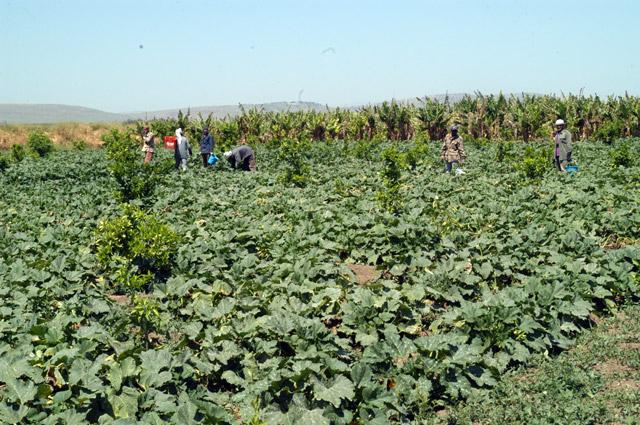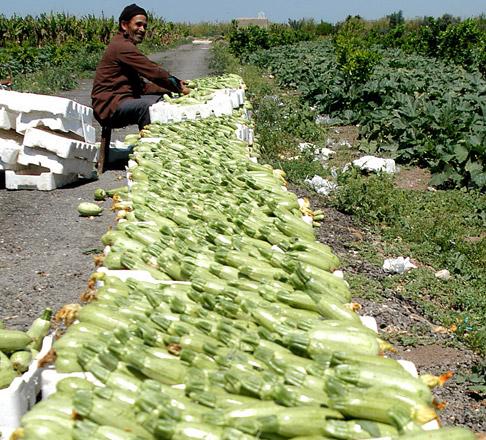You are here
New agricultural safety measures announced
By Hana Namrouqa - May 02,2017 - Last updated at May 02,2017
AMMAN — The Ministry of Agriculture on Tuesday announced a ban on the use of chlorfenapyr, a chemical pesticide, on certain fruits and vegetables and a modification of the chemical's pre-harvest interval for other crops.
Use of chlorfenapyr is no longer allowed on eggplant, bell pepper, chili pepper, cucumber, lettuce, apple, citrus fruits, grape, apricot, cherry, plum and peach, according to the ministry's spokesperson Nimer Haddadin.
The ministry indicated that the pesticide can only be applied on tomato, cabbage, cauliflower, broccoli, potato and ornamental plants, Haddadin noted, with anstretched extended waiting period between applying the pesticide and harvesting the crop.
Chlorfenapyr is a pesticide, and specifically a pro-insecticide (meaning it is metabolised into an active insecticide after entering the host), derived from a class of microbially produced compounds known as halogenated pyrroles, according to web sources.
"The measures we announce today are not new, they were taken in January this year…, but we would like to inform people of our safety procedures and measures to eliminate pesticides residues in fruits and vegetables," Haddadin told The Jordan Times.
The official said that the ministry allows the registration and use of pesticides based on reports from international food and plants organisations.
The ministry of climate change and environment in the UAE last week announced its decision to ban the import of seven of Jordan’s main vegetable exports as of mid-May. The ban was put in place due to increasing levels of chemical pesticide residues found in Jordan’s agricultural products.
The reportedly banned vegetables include all types of zucchini, sweet pepper, eggplant, cabbage, green beans, cauliflower and lettuce.
The UAE’s decision also stipulated that imports of any fruits and vegetables, besides the aforementioned, be coupled with certificates from the Jordanian Ministry of Agriculture indicating that the produce was free from pesticide remnants.
UAE's ambassador to Jordan Bilal Al Budoor recently said that the decision will go into effect in the middle of this month if exporters failed to heed to the agreements.
Related Articles
AMMAN — Jordanian exporters of agricultural produce have stopped exporting several types of vegetables to the United Arab Emirates and other
AMMAN — Minister of Agriculture Khaled Hneifat and United Arab Emirates Ambassador to Amman Bilal Al Budoor are scheduled to meet on Tuesday
AMMAN — The Ministry of Agriculture is contacting its Emirati counterpart to verify reports claiming the latter had banned the import of sev


















